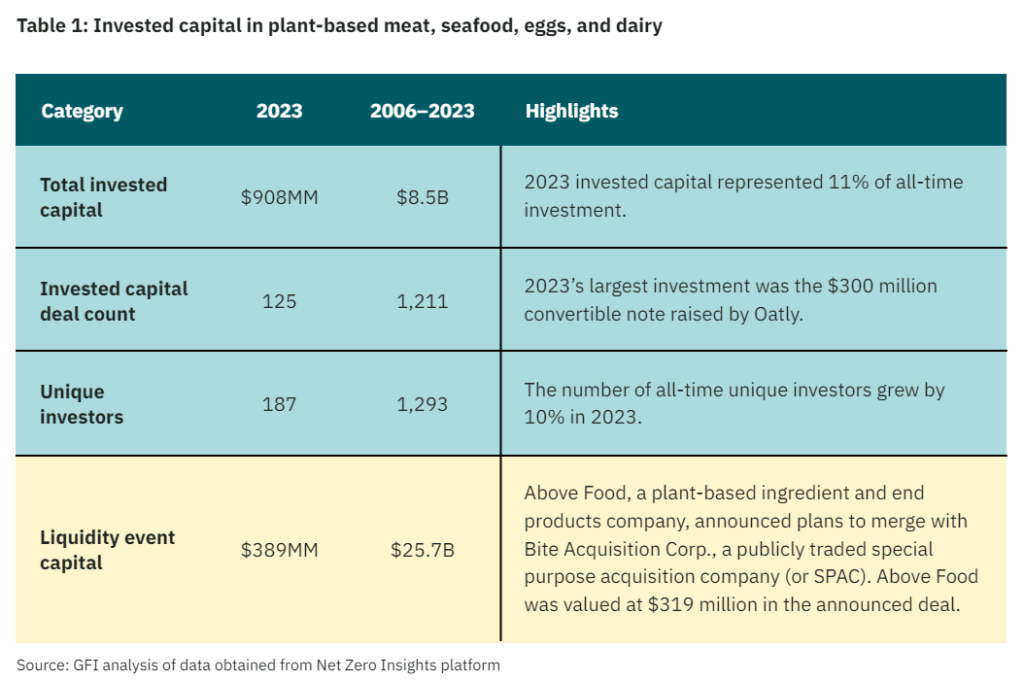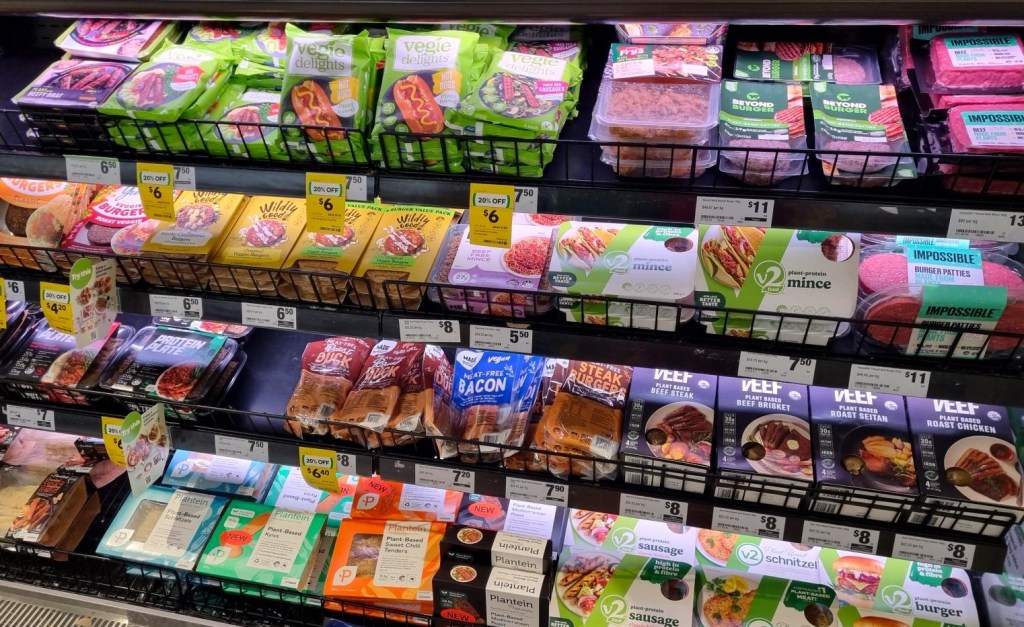The Good Food Institute (GFI) has released its 2023 State of the Industry Report for the plant-based alternatives industry.
The study – which encompasses plant-based meat, seafood, dairy, and eggs – is one of three new reports released by the think tank in tandem, including Cultivated meat and seafood as well as Fermentation.
Investment
According to GFI’s analysis of data from the Net Zero Insights platform, plant-based meat, seafood, egg, and dairy companies raised $907.7 million in 2023 (representing 11 percent of all-time investment), bringing total private investments in the sector to $8.5 billion.
In addition, the number of unique investors in plant-based companies grew by 10 percent to nearly 1,300.

Technologies
The GFI report identifies new sources of plant-based ingredients, new ways to cultivate these plants, and novel processes to optimize taste, texture, and nutrition as the key technological trends for plant-based foods in 2023.
Among the advances made in ingredient development were new animal-free fats and emulsifiers to novel aquatic, leguminous, and upcycled protein sources.
The report also highlights the improved scalability of traditional texturization methods like extrusion along with how “process-controlled microstructure design” expanded available technologies for scalable plant-protein texturization.
Government & Regulation
GFI notes how 2023 was a year of important milestones with regard to government support of plant-based alternative proteins. Canada remained the global investment leader with $110 million USD allocated to support plant-based protein market growth. Meanwhile, in Europe, the UK and Germany both announced large commitments to alternative protein R&D and commercialization.
Government support of alternative protein startups and product development was also announced in countries such as Brazil, Japan, Singapore, and South Korea, among others.
The state of plant-based in ANZ

The GFI report highlighted the state of the plant-based industry in Australia and New Zealand in 2023, noting how two of Australia’s six state governments boosted their local plant protein industries by supporting farmers and food producers with targeted public investments.
The government of Western Australia allocated approximately $3.3 million USD to support the construction of a factory that will produce oat milk enriched with lupin protein, both from locally grown crops.
In addition, New South Wales allocated roughly $1.6 million USD for an Alternative Protein Application Centre designed to develop large-scale processes and conduct R&D on all areas of alt proteins, including fermentation, cultivated meat, and plant-based foods.
In New Zealand, the government’s Endeavour Fund awarded almost $7 million USD in funding to the “Plant-Based Food Ingredients: a Systems Approach to Sustainable Design” project, which is focused on developing alternative protein products made from domestic crops such as green peas, oats, and hemp.
The report also calls attention to the updated Industry Guidelines for the Labelling of Meat Alternative Products in Australia and New Zealand and equivalent set of guidelines for plant-based dairy alternatives.
To stay up-to-date on the latest industry headlines, sign up to Future Alternative’s enewsletter.
Posted on:


